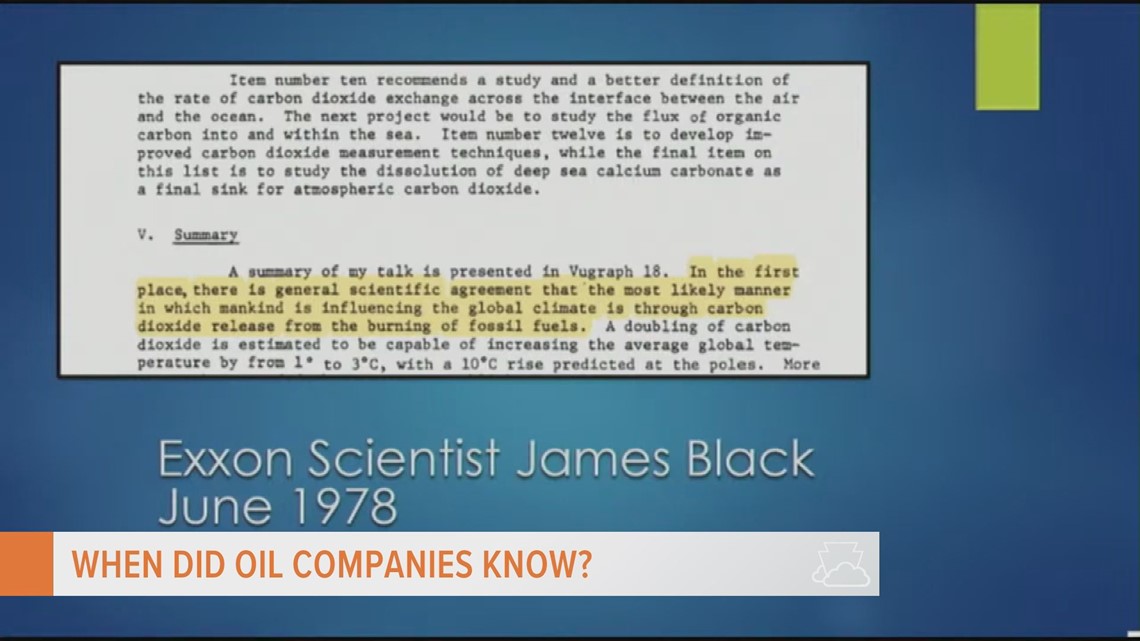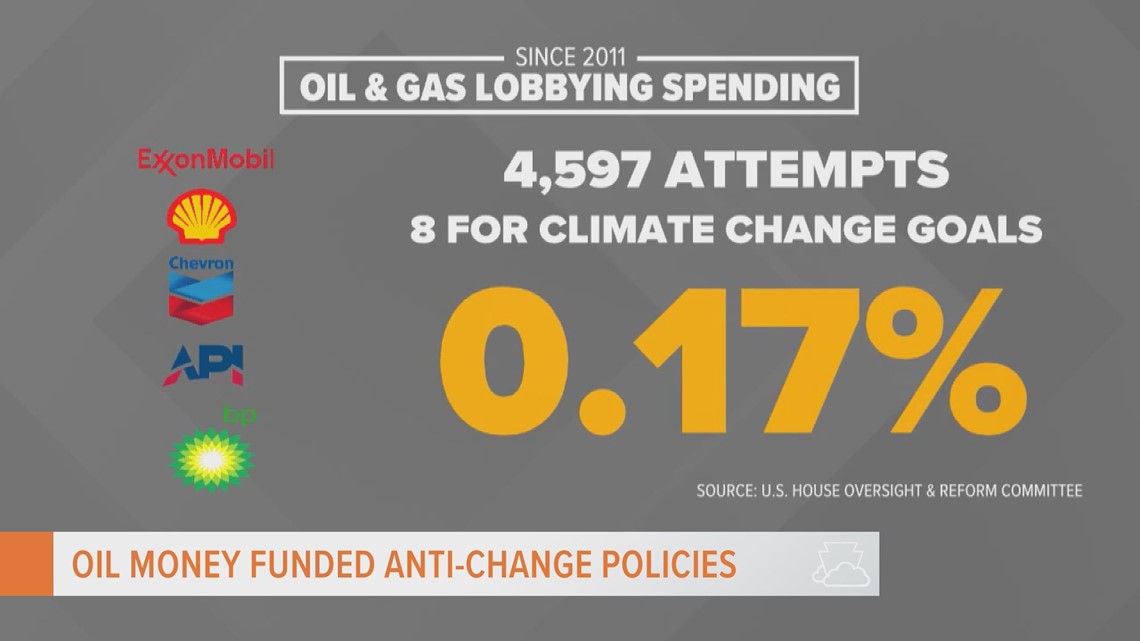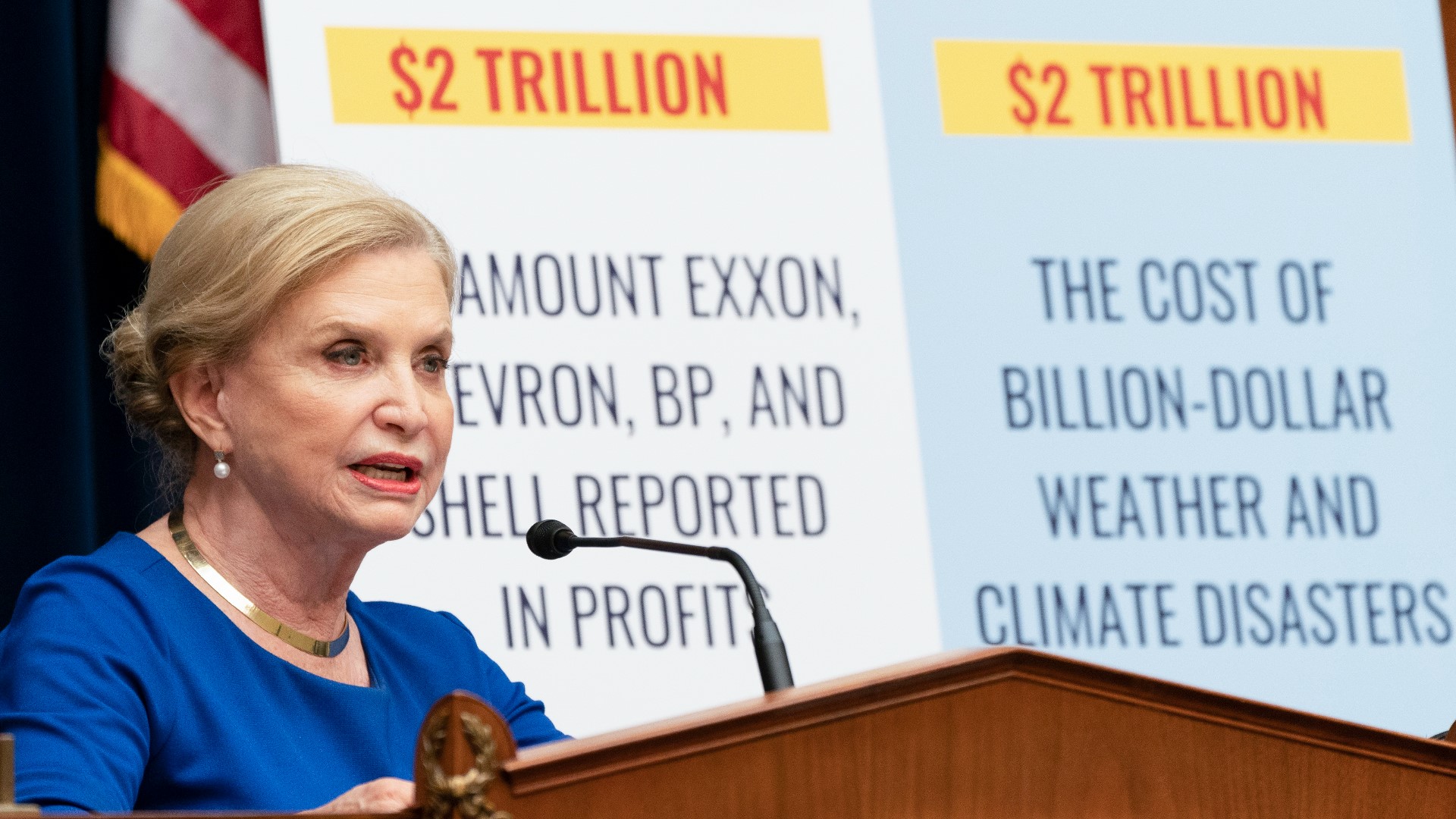HARRISBURG, Pa. — Last month, the CEOs of ExxonMobil, BP America, Shell, and Chevron testified in front of the House Oversight and Reform Committee. Those CEOs faced tough questions about how their companies contributed to climate misinformation and how they might still.
Chairwoman Carolyn Maloney (D-NY) started the hearing by asking each CEO whether they agreed that climate change was real. Each one said yes.
Representative Maloney went on to discuss just how long these companies have known about the dangers that the use of fossil fuels possess.
"James Black was an Exxon scientist, and I'd like to put up on the screen what he told the company's top executives in a secret briefing back in 1978, more than 40 years ago," Maloney told the CEOS. "He said, I quote, 'there is a general scientific agreement that the most likely manner in which mankind is influencing the global climate is through carbon dioxide release from the burning of fossil fuels.'"


That means that Exxon knew of the dangers of carbon dioxide as early as 1978, but failed to make any changes to their business practices after the study.
The oversight committee says that in 1996 and 1997, then-CEO Lee Raymond publicly stated that scientific evidence was inconclusive and that the case for global warming was far from airtight. Representative Maloney alleges that that would show inconsistency between what the CEO told the public and what top executives at the company were told years prior.
And Exxon was not the only company aware of these issues.
The CEO of BP America testified at the hearing last month saying, “before the 1990s and 80s, we were aware of reports that were out there. But I would say BP focused on the landmark IPCC study in 1996."
That 1996 Intergovernmental Panel on Climate Change (IPCC) study directly attributed climate change to human influence. And while the CEOs repeatedly testified that their respective companies’ positions held with the science at the time, actions spoke otherwise.
All four companies are members of an organization called the American Petroleum Institute, or API. This group seeks to advance the cause of and lobby for the fossil fuel industry.
"They’re spending millions of dollars to kill electric vehicles and methane gas," Representative Ro Khana (D-Calif.) said at the hearing. "And you could do something about it. You could tell them to knock it off. Would any of you take the opportunity to look at API and say stop it? Any of you?"
"Chairman Khana, what I'll commit to is being an active member in API,” responded Gretchen Watkins, president of Shell Oil Company.
While oil and gas companies acknowledge climate change exists today, the money has not flowed to Washington D.C. In the last six years, oil and gas companies have spent tens of millions of dollars to lobby Congress. Out of thousands of attempts to affect legislation, they’ve tried to further climate change policy only 0.17% of the time.


Dr. Edward Maibach, public health communications specialist at George Mason University, says that these companies are being purposefully selective when it comes to telling the truth.
"Unlike what they were telling us previously, which was 'this isn't a problem,' now they're admitting it's a problem," he said. "So, they're telling the truth, but a selective version of the truth."
Part of that truth includes the formation of the Oil & Gas Climate Initiative. The group claims to battle climate change and search for renewable sources of energy. Why?
"The thing that climate scientists were warning us would happen, that our weather would start getting worse, it's becoming increasingly obvious,” Maibach tells FOX43. "People get injured or killed during extreme weather events. There is a whole variety of ways that climate change is hurting Americans already."

